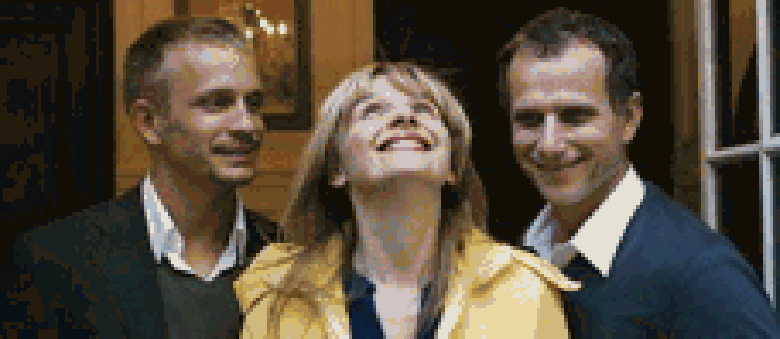Reviews
L’Heure d’été
Olivier Assayas
France, 2008
Credits
Review by Jenny Jediny
Posted on 04 October 2008
Source IFC Films 35mm print
Categories The 46th New York Film Festival
The opening scenes of Summer Hours act almost as a prologue, setting the stage for the aftermath of foreseeable death, as a family deals with the loss of a parent. Oliver Assayas’ latest depicts a chapter in life nearly all of us must deal with at one point or another, with such subtle grace that the feelings of grief slip in and out throughout the film, only fully forming in the final passages. There are tears in Summer Hours, but there is also the quiet acceptance of the passage of time, and the sense that no matter how hard you may hold on to the past, it will eventually fall away from your grip.
Three adult children - Frédéric, Jérémie, and Adrienne - discuss their mother’s estate, and its potential sale after her death. The house, an incredibly beautiful country home outside of Paris, is at the heart of Summer Hours, its value, both monetary and emotional, conveyed from the very beginning. The adults have returned home (two of them after many months, and from many miles, as they now reside in New York and Shanghai) to celebrate their mother’s birthday. Hélène (portrayed by the radiant Edith Scob, once muse to the director Georges Franju) is alive in the opening scenes of Summer Hours , but already contemplating her death, and she pulls aside Frédéric, the only child still living in France, and details the eventual breakdown of her possessions. It’s discomforting, despite Hélène’s calm and unhurried nature, and Frédéric will remain in this disquieted state after her death; his responsible nature (oldest child, of course) drives his need to preserve his mother’s memory through her estate, while his siblings wish to sell it off.
This may sound like a bit of a bore - selling antiques and rare art - or the potential for bad drama - siblings fighting tooth and nail over who-gets-what - but neither exists here. Mainly, there is the slow realization of how memories form—that a familiar desk typically covered in books, papers, and a mother’s handwritten notes can suddenly feel like a stranger when the clutter is removed, and it now sits polished, empty, and very lonely. The objects in Summer Hours are not typical in that they are extraordinarily rare and expensive, the family’s late uncle having been a famous artist, but this aspect matters little in Assayas’ vision. There is a moment in which the housekeeper, having returned to see both the house and the children, finds them with appraisers rummaging through Hélène’s possessions. Frédéric offers her any object in the home to remember Hélène; her choice, a glass vase, is selected for its value in her memories - a vase she used over and over for flowers, to make the house more cheerful for Hègrave;ne - but we know the vase is a rare and expensive work of art. The way Assayas pulls apart the idea of value is keenly felt and ripples throughout, as Hélène’s children see their physical memories become, quite literally, just objects.
Although quite melancholy, Summer Hours slowly finds its way back to the living, in the youthful forms of Hélène’s grandchildren. Our first glimpse at the start of the film is their scavenger hunt on the house grounds, and they remain present, only given full attention in the closing scenes of the film. Returning to the now empty house, they invade with a swarm of friends, blasting French pop and hip hop music, and enjoy this brief interlude before the new owners arrive. The mood is light and ebullient, swinging the story full circle as a new generation moves in, however briefly. But the past is not forgotten; walking in the woods, Hélène’s granddaughter recalls her memories of this house and of her grandmother with passing sadness to a friend, before taking swift flight over a stone wall to escape the crowd. This last gesture is a lovely one, suggesting history is not forgotten with the young; only that it will be remembered and retold in new ways.
More The 46th New York Film Festival
-

Wendy and Lucy
2008 -
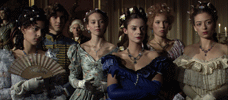
The Northern Land
2008 -

The Last Command
1928 -

Hunger
2008 -

Lola Montès
1955 -

Summer Hours
2008 -

Gomorrah
2008 -
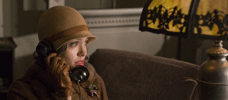
Changeling
2008 -

Che
2008 -

I’m Gonna Explode
2008 -

Waltz with Bashir
2008 -

Happy-Go-Lucky
2008 -

The Windmill Movie
2008 -

Tulpan
2008 -
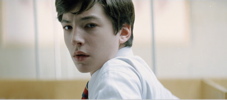
Afterschool
2008 -
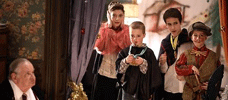
A Christmas Tale
2008 -
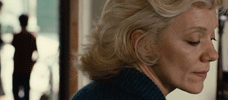
The Headless Woman
2008 -

Bullet in the Head
2008 -
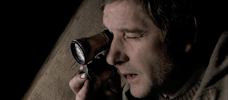
Four Nights with Anna
2008 -

Night and Day
2008 -

The Class
2008
We don’t do comments anymore, but you may contact us here or find us on Twitter or Facebook.



